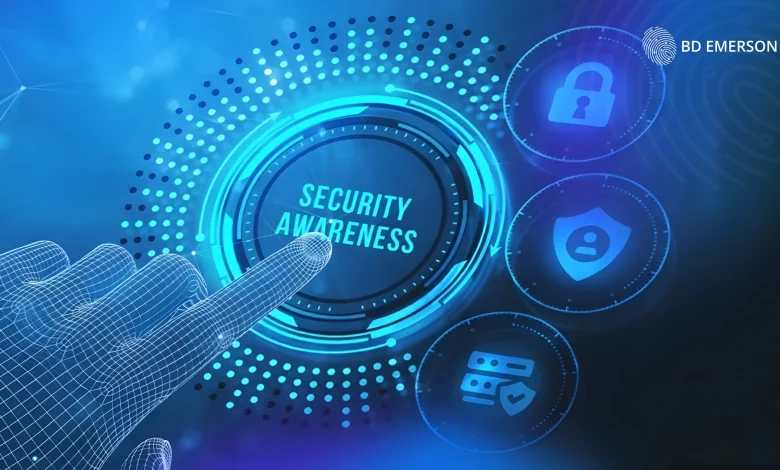COLUMNS: Simple steps to stay safe online Part 1

DAR ES SALAAM: OCTOBER is Cybersecurity Awareness Month, a time when the world comes together to talk about how to stay safe in the digital age.
For Tanzania, this is not a foreign issue. Every day, millions of Tanzanians rely on mobile phones, internet services and mobile money platforms like M-Pesa, Tigo Pesa, Airtel Money, T-pesa and HaloPesa.
According to the Tanzania Communications Regulatory Authority (TCRA), mobile phone subscriptions now exceed the national population count and mobile money transactions are part of daily life.
While these technologies make life easier, they also open doors for fraudsters and cybercriminals.
This campaign reminds us that in today’s digital age, protecting our money, information and identity online is just as important as locking the doors of our homes.
The truth is simple: Cybersecurity starts with you. Why cybersecurity matters in Tanzania? Tanzania has experienced rapid digital growth.
According to the Tanzania Communications Regulatory Authority (TCRA), internet penetration has now passed 70 per cent and mobile money transactions have become part of daily life.
Farmers, students, teachers, boda boda drivers and business people all depend on digital services. But where there is money and information, criminals also follow.
In recent years, there have been reports of Tanzanians losing their savings after receiving fake SMS messages, being tricked into sharing their PINs, or clicking on dangerous links.
This shows that cybersecurity is not just for IT experts in Dar es Salaam.
It is for every ordinary Tanzanian who owns a phone or uses the internet. Common tricks criminals use Cybercriminals are very clever.
They know how to take advantage of trust and lack of awareness. Here are some of their favourite tricks:
1. Phishing messages – Fake SMS, emails, or WhatsApp texts asking you to “confirm your account” or “send your PIN” to solve a problem.
2. Fake promotions – “You have won 1 million shillings, click here!” These are designed to make you act quickly without thinking.
3. Impersonation calls – Fraudsters pretending to be from a bank, telecom company, or even TCRA.
4. Malicious links – Links shared on social media that download harmful apps into your phone.
As the Swahili saying goes: “Mtego wa panya hunasa waliomo na wasiokuwamo” (a mouse trap catches both the guilty and the innocent).
If we are not careful, anyone can fall victim. Just last year, Tanzanian regulators reported that thousands of attempted fraud cases were stopped by telecoms and banks thanks to improved systems.
Still, many people lost money simply because they shared personal details when tricked.
Simple steps to stay safe The good news is that protecting yourself is not complicated.
ALSO READ: Tanzania joins global efforts in observing cybersecurity awareness month 2023
Here are five simple steps every Tanzanian can take:
1. Use strong and unique PINs and passwords. Avoid using your birthday, year of birth, or “1234.”
2. Never share your PIN or password. Not with your spouse, children, or best friend.
3. Think before you click. If a message looks suspicious, delete it.
4. Enable two-factor authentication (MFA). Many banks and apps offer extra verification steps. Use them. 5. Update your phone and apps. Updates fix weaknesses that criminals may exploit.
These habits may look small, but they can protect your hardearned money and personal information.
Local voices: Lessons from experience In Mbeya, a young shopkeeper recently shared how he nearly lost 300,000/- after receiving a call from someone pretending to be a mobile money agent.
The fraudster claimed there was a “network error” and asked him to share his PIN to “fix the problem.” Luckily, he refused and reported the case.
“I almost believed him because he was very convincing,” the shopkeeper said.
“But then I remembered hearing on the radio that telecoms never ask for PINs.” Stories like this show why awareness is the first line of defence.
Cybersecurity and trust in the digital economy For Tanzania to succeed in building a strong digital economy under the National Development Vision 2050, people must feel safe online.
If citizens lose trust in mobile money, e-commerce, or digital government services, development will slow down.
That is why TCRA, the Bank of Tanzania, and the Ministry of Information and Communication are investing in education campaigns, fraud detection systems and national strategies. But government alone is not enough. Each user has a role to play.
Tips for families and students Cybersecurity also matters for young people, who spend hours on TikTok, WhatsApp and Instagram.
Parents and teachers should guide students on safe internet use: Avoid oversharing personal details like school name, location, or phone number. Be careful of online strangers who may have bad intentions. Learn to recognise cyberbullying and report it.
As one Dar es Salaam teacher put it: “Digital skills must go hand in hand with digital safety. Otherwise, we are raising a generation of victims.” The role of media and communities Radio stations, newspapers, churches, mosques and local leaders have a big role to play in spreading the cybersecurity message.
A five-minute reminder during a Sunday sermon or a village meeting can save someone from losing money.
In rural areas, where literacy levels may be lower, community meetings can use stories and roleplays to explain how cybercriminals operate.
The message must reach beyond cities. Final word: Cybersecurity is everyone’s responsibility Cybersecurity is not about fear. It is about awareness and responsibility.
If every Tanzanian takes simple steps — strong passwords, cautious clicking, reporting fraud — then criminals will have fewer opportunities to succeed.
As the proverb goes: “Usipoziba ufa, utajenga ukuta.” (If you don’t seal a crack, you will build a wall.) Taking small steps today prevents big losses tomorrow.
During this Cybersecurity Awareness Month, let us all commit to protecting our money, our information and our future. This October, let us all take cybersecurity seriously.
By being cautious and informed, we protect not only ourselves but also our families, businesses and our nation’s digital future.





